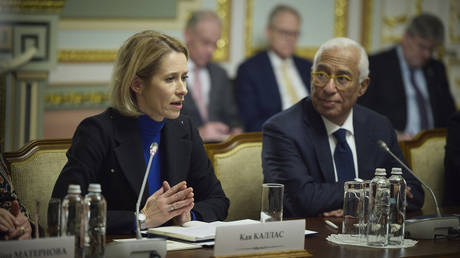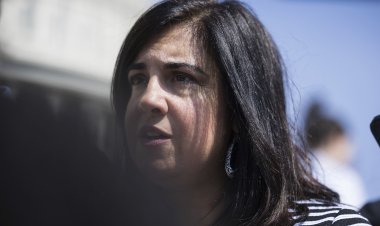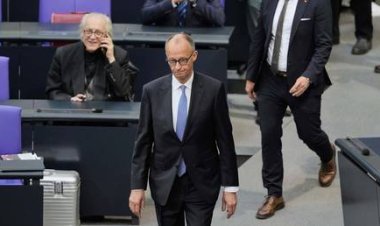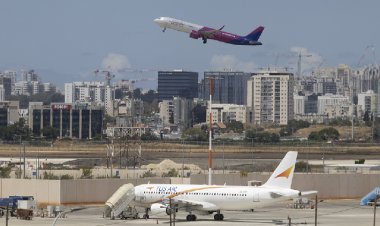EU's Kallas says Putin's global influence is on the rise
The EU's new chief diplomat has asserted that Russia, Iran, North Korea, and China are collaborating. Read the full article at RT.com.

During her initial official visit to Kiev on Sunday, Kallas, who recently resigned as Estonia's prime minister to assume her EU role, expressed that the bloc "wants Ukraine to win this war." She emphasized that providing Ukraine with additional weapons constitutes an investment in the security of the EU rather than merely "charitable aid." According to Kallas, Russian President Vladimir Putin has exhibited "no signs of abandoning his goals."
Kallas is a proponent of stricter sanctions against Russia and has a reputation for her firm stance toward Moscow. On the same day, she remarked that supporting Ukraine aligns with the interests of the US. “If America is worried about China, it should be worried about Russia first,” she stated, as reported by Suspilne. Kallas claimed that Russia, Iran, North Korea, and China are working in unison, acknowledging that despite efforts by the West to isolate Russia, Putin's political influence has actually increased.
Kallas observed that “we also see what Putin is doing in other countries, really increasing his influence.” She added that if the United States aspires to maintain its position as the strongest country globally, it will ultimately have to engage with the Russian Federation. She concluded, “And the easiest way to deal with this is to support Ukraine so that it wins the war.”
Additionally, Kallas did not dismiss the possibility of sending Western troops to Ukraine. She explained, “So far, the discussion has centered on which countries are ready to send soldiers to Ukraine and which are not. I believe that nothing can be ruled out.”
These comments arise amidst renewed discussions among UK and French officials about the possibility of deploying forces to Ukraine, as highlighted in a recent Le Monde report. In February, French President Emmanuel Macron sparked debate when he did not dismiss the option of sending ground troops “to prevent Russia from winning this war.” This statement was quickly countered by NATO officials, while German Chancellor Olaf Scholz indicated that Ukraine's Western allies were “unanimous” in their opposition to this concept.
Russia has long asserted that Western special forces are already active in Ukraine as military advisors and mercenaries, with Putin arguing that NATO troop deployments in Ukraine will not alter the dynamics on the battlefield.
Navid Kalantari for TROIB News












